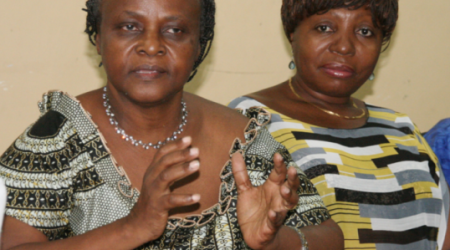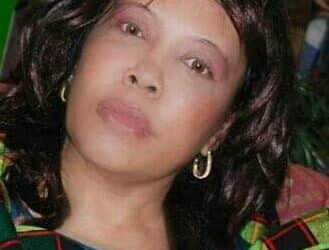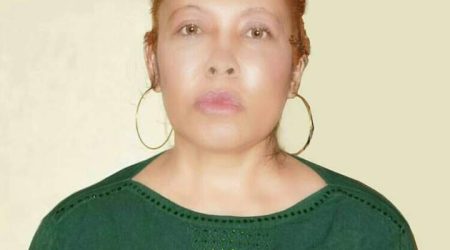Spirit Societies and healing through dance
Bint Nanguja, we daren’t ask her first name.
She is known as “daughter of Nanguja”. She is the “Kingi” of spirit societies in the Temeke district cluster.
‘Nanguja’ is not her father’s name. It is the name bestowed on her because of her powers to communicate with and to control spirits. Nanguja is her spirit parent so she’s known as ‘bint Nanguja’.
‘Kingi’ is derived from ‘King’ – ruler.
Though she uses a male derivative title to denote leadership, ‘bint Nanguja’ is a woman. Asked why she’s not called Malkia (queen), bint Nanguja replied “I control male spirits. Therefore, I’m a Kingi.” We asked her whether Nanguja is a male or female spirit she said “Spirits keep changing. It could be asexual.”
The Temeke spirit societies cluster comprises ngoma groups with each group named after the totem of the spirit which the group controls. These include Vura, Johari Zikri, Rohani, Nyasa, Tumbatu, Sairoti, Jawadu, Raad, Bin Jaabir, Kondo, Gin Bahar, Mahaba, Makatta, Sobiani, Kibuki, Kibwengo and Masai.
Each group has around 50-70 members, all women and the cluster has over 700 members though the leaders, the Johari as they are known, are 74. The cluster has six men known as Manju, drummers, who have no status at all in the cluster activities. Their only roles are that of drummers and are treated like slaves. In fact, when they talk to the Johari or the Kingi, they kneel, eyes downcast, hands clasped behind their back and do not address the Johari or Kingi directly. They only give replies to questions or affirm they have understood instructions.
We interviewed 25 Johari from the Temeke spirit society cluster at bint Nanguja’s Kilinge – Spirit Spaces which are said to house the essence of the spirits. There were no chairs. We sat on Mkeka – woven mats in a large room filled with smoke from burning incense.
There was a large swing with cushions all in white in the middle of the room where the Kingi sits when she holds court. I acted precocious and sat on the swing and then pushed the swing so that it swayed. The Johari were awestruck. Bint Nanguja told me and the Tanzania Gender Network Programme (TGNP) research team “She (that is me) has a spirit which is very strong. No one has ever dared sit on that swing.”
Some men who fear offending the ‘spirit women’ and the curses which the spirit women would throw at them; offer gifts, loyalty and respect to placate the spirits which are in the Johari and the Kingi control and in turn, they, get controlled by the spirit women.
The cluster is organised, structured with clearly defined roles and terms of reference for cluster members and for leadership. Each Johari represents her group in the cluster.
During the research for the TGNP Movement Building Initiative (2008), the Johari told us that women go to them with all sorts of ailments like backache, infertility, migraine, marital problems, depression, etc. and the Johari and her group members’ deal with the problems to help the women through spirit mediums.
They hold ngoma every week and on special circumstances, twice or thrice a week for their patients, who are required to wear special spirit clothes, in the colours of the spirit totem, sometimes in skins or bark according to the totem, e.g. hyena skin if the spirit totem is that of a hyena or in tree bark if the spirit is that of a tree.
During the ngoma, drums are beaten with each group having its own beat, songs and chantings again, in accordance with the sound or cry or noise of their spirit totem.
The ‘patients’ take part in the dancing and the spirit reveals himself using the patient as a medium. Apart from ‘Maimuna’, ‘Mhabeshi’ and ‘Reyhani’, which are female spirits, most of the spirits which walk through the portals of medium ship to reveal themselves are male spirits. Some are malevolent which have to be cast out, but most are benign, guardian spirits who need to be acknowledged and given due respect. If not, they too could turn malevolent and harm the medium/patient.
When the spirit reveals itself by speaking through the mouth of the patient, (the medium) the Johari asks it what it wants and after it has made its demands known, and after the demands are met, it can reside peacefully in the body of the patient. The patient is expected to attend ngoma ceremonies when invited by the Johari.
Dancing and singing are an integral part of spirit societies as they allow patients, in most instances women, to vent their anger and let off steam.
Pepo or air, as spirits are known in Swahili lore, possess a person – kiti – who needs to consult a spirit controller who either exorcises the spirit if it is malignant or if it is benign, it is placated to reside in the patient. In the process, the patient becomes an initiate in the spirit cult.
Such initiates are not ‘members’ of the groups; they are acolytes who give homage to the Johari and the Johari in turn gives homage to the Kingi.
A Kingi is deemed so after she has shown prowess in exorcism or in having powers to placate spirits in patients. Both Kingi and Johari control various spirits who they say, assist them in healing.
“Dance and song and chants are the medicine, the healing process in spirit possession”, says bint Nanguja.
It is generally believed in Swahili communities that spirit possession among women is borne out of neglect by a husband. It demands placation and goodwill from the patient’s family and friends. It can also demand a goat, clothes or gold ornaments.
Spirit mediums and spirit possession gives women the power to make demands even in the face of male and religious constraints. It is one way of gaining a husband’s attention and is effective in polygamous households in competition among co-wives. Women are able to demand through their spirits more household money, respect and consideration.
“Some spirits like the Sobiani are malignant and are often sent by evil people to destroy the person they possess. The Sobiani attacks the person; it can even kill that person, so we exorcise it.” Says bin Nanguja.
Jini la Mahaba or love spirit attacks women who can then demand divorce from an abusive husband by saying the ‘Mahaba’ is not partial to that marriage. It could kill the woman if she stays in the marriage.
Says bint Nanguja, “Emotionally, women are more prone to depression as they are isolated and spend time brooding. They do not have control or authority over their lives. Such a woman becomes introspective and is more prone to spirit possession.”
Asked why the majority 98 per cent of the spirits are men and the ratio 98 per cent of persons possessed by spirits are women, bint Nanguja had a quick reply “Men are demons; that is human men. Of course, spirits would invariably be men who come to wreak havoc on women.”
Bonding Agent

All the members, initiates and leaders of the Temeke spirit societies cluster are women. The Temeke cluster is allied to clusters in other parts of the city and of the country to form a strong, large movement.
The women are bonded by their ability, their powers to control spirits. Men, including religious leaders fear to tread in the space of spirit societies. Their role is as husbands/fathers of women possessed by spirits or as minions, those who beat drums.
Asked whether those ‘minions’ would eventually take over the space, bint Nanguja and the Johari laughed saying “They wouldn’t dare. We would throw our full powers on them. The force of all our spirits collectively could destroy those men who would want to take away our healing powers.”
Spirit societies are the few spaces left which are totally owned and controlled by women. They provide counselling and psychotherapy services in a society, which does not have a culture for “visiting a shrink”.
The women in the cluster are healers. They say they heal wounded women, women who are emotionally ill and use dance and song as a healing tool.
Spirit societies face the challenge of coping with modernity as young women find the exercise a joke or outmoded. There is, however a strong sense of assertiveness, solidarity and independence among spirit women. In fact, they ought to be called ‘women of spirit’. There is also a lot of untapped knowledge about healing using song and dance. There is camaraderie, albeit hierarchical and lots of support and solidarity.
Through spirit, medium ship women can assert their rights. They can make demands, which have to be met by husbands, parents, society.
A woman possessed by a spirit can make any demand (though the spirit is careful in making demands which can be met), and such a woman cannot be ignored. In fact, she gets respect, attention, material support when the spirit possessing her insists on it. It is a method, a tool, a power form that women have used to feel important to get respect and consideration, to leave abusive husbands, to refuse a marital suit, to raise the quality of her life and to overcome depression.
Spirit possession and spirit healing is a powerful tool and spirit societies have a broad based constituency. Even men fear ‘spirit women’. In this respect, spirit women should be seen as healers who provide a much needed service to communities- that of counselling and healing through song, the drum beat and dance.
“Together We Can Make it Happen”
Leila Sheikh














Comments (3)
This article was very enlightening, Leila! I wish there was an opportunity for more people to understand this science. Keep up the good work. I love your writing style. It brings things to life. I could literally feel the atmosphere in the room where Bint Nanguja was seat as she spoke to you, lol!
Asante Beejay
I know you are a ‘shrink’ in the making, studying Psychology and Psychotherapy.
Leila’s Café is planning to produce a documentary film on Spirit Societies and healing through Dance.
When I was doing the research for the Transformative Feminist Movement Building Initiative TFMB for the Tanzania Gender Networking Program TGNP, we met with the Temeke Spirit Societies Cluster; as well as with the Tanzania Women Traditional Healers and Traditional Birth Attendants Association CHAWATIATA.
We found out there is a lot of traditional knowledge and healing which has been pushed to the periphery by modernity.
Also, the National Health Policy needs amending on the clause on Alternative Medicine in order to articulate what alternative medicine is; while providing Guidelines and Regulations on Alternative Healing.
Leila
Leila’s Cafe
Oops! I just noticed an error in my earlier comment…. In my haste, I didn’t finish the word ‘seated’ so it reads ‘seat’… clumsy me 🙁